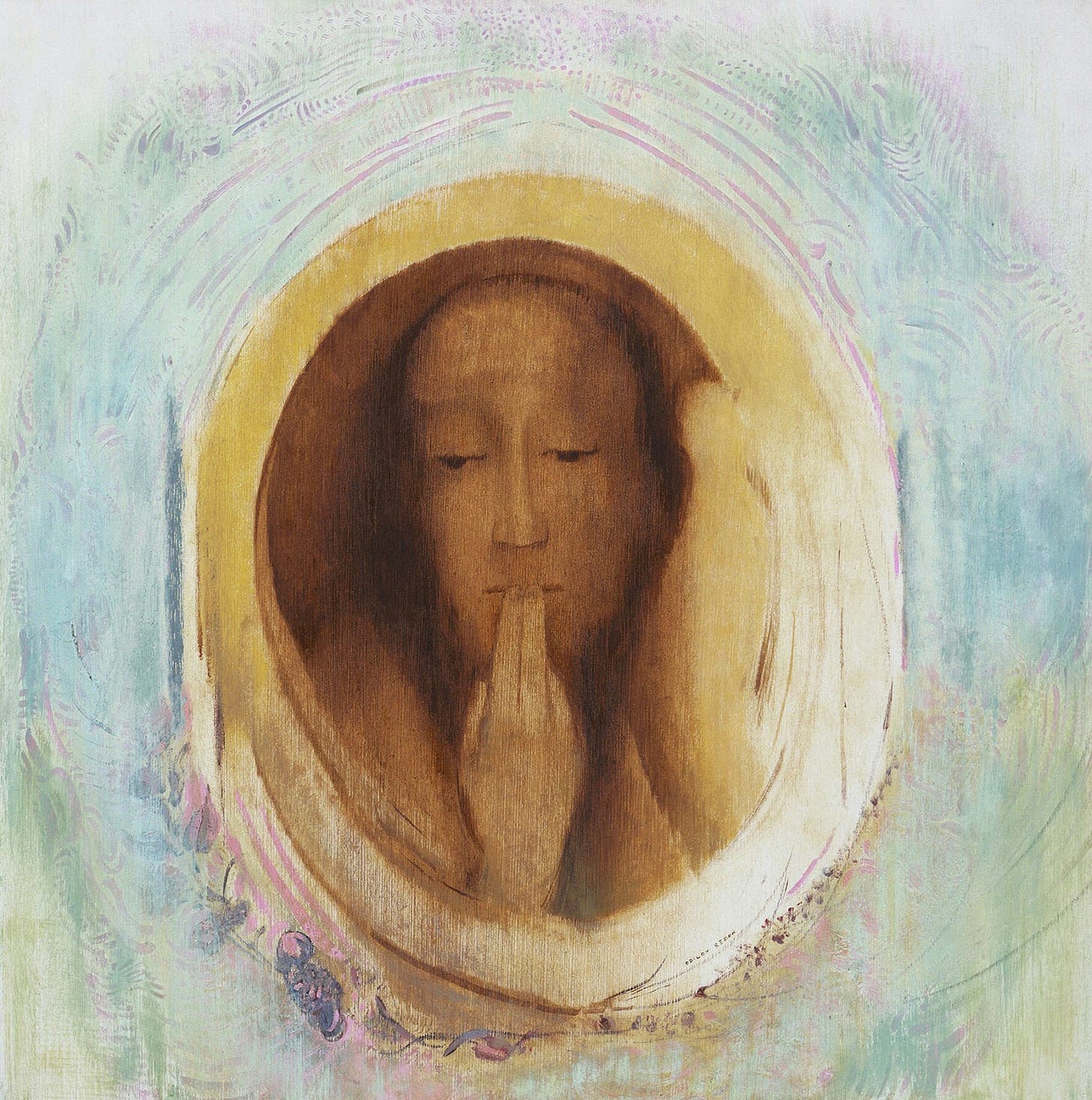As a mom of youngish kids, I crave silence. The best Mother’s Day present I ever received (apart from lovely homemade cards) was noise canceling headphones. For many of us, our days and lives are filled with so much noise, it can be hard to escape the cacophony of chatter.
In hospitals, one of the biggest challenges to patient satisfaction is the very low “level of quietness.” Patients are given surveys after they are discharged and they rank hospitals dismally in this area. Even with a private room and a thick fire door and limited overhead announcements – the perception is that there is a lack of quiet. One hospital where I worked even had an electronic “Yakker Tracker” in the nurse’s station to remind staff to keep their voices down, especially at night. It looked like a traffic light and the yellow light was a warning that the decibels were rising. Red meant it was too loud. I’m not sure I ever saw it lit in green – meant to indicate the perfect level of quietness.
What does your daily Yakker Tracker look like?
Are there any moments of green in there?
Or is the red light of oversaturation of noise constantly flashing?
Sitting in Silence with Ourselves
Intentionally seeking out silence can be a powerful spiritual practice. Whether it is meditation, a walk in the woods or sitting quietly at the kitchen table – engaging in silence can help us connect more fully to ourselves and the divine.
Connection to Self
When we give ourselves the gift of quiet, we can reflect on and process our innermost thoughts. We think through our ideas, opinions and events. We might allow ourselves to wonder about our hopes or dreams. Some can access deeper realms of creativity when all distractions cease.
Others report noticing a sense of calm or inner peace when they are alone with themselves. Silence can ground us and help us to manage anxiety. Feelings might rise to the surface and we can hold them gently and notice what is going on with our emotional state. Studies have shown that silence helps with all of these aspects and contributes to improving cognitive health. It’s a simple but powerful tool for improving mental resilience and overall well-being.
In other words, as theologian Richard Rohr writes, “It is in silence that we encounter our true selves.”
Connection to the Divine
In Spiritual Direction, sometimes I will slow my directees down and suggest we sit for a moment in silence, particularly if they have something heavy weighing on them. Often that is when tears start forming. By dwelling in the silence, we tend to move from our head to our heart.
In my own prayers I will sometimes prattle away to God and not leave room for any answers. Silence allows for those answers to emerge. If I am talking all the time, it means I am not listening.
Spiritual poet Rumi wrote “Silence is the language of God; all else is poor translation."
Are we giving God the silent space to speak to us?
Or are we filling our lives with noise and therefore not allowing room for the Spirit to move?
Difficulties of Silence
French Philosopher Blaise Pascal famously said in 1654, “All of humanity's problems stem from man's inability to sit quietly in a room alone." To consider the large-scale issues that could derive from our personal aversion to silence is mind-boggling. What I also find compelling about this quote is that what was true in the 1700s is also true today.
A few years back, there was a study that found many people would rather zap themselves with electric shocks than sit in a room with no distractions. Researchers left participants alone in a lab room for 15 minutes, with only one option to break the silence: a button they could press to give themselves an electric shock. The results were startling. Despite having previously stated that they would pay to avoid being shocked, 67% of men and 25% of women chose to shock themselves rather than sit quietly in silence and reflect.1
For most of us - even if we don’t want to shock ourselves - it is still difficult to sit in sustained, intentional silence. When I first began meditating, sitting in silence for even 3 minutes felt like an eternity. Over time it got easier, but there was lots of intentional practice involved. Even sitting outside on my deck, I am often tempted to give into the pings of my phone or listen to an audiobook rather than be still and notice the birdsong. It takes energy to resist the ongoing hubbub of the world and sink into a deeper state of stillness.
You may have heard the mindfulness mantra “Don’t just do something, sit there!” As if it were that easy! And that’s the point. Silence is countercultural. It’s something we have to work to engage.
Additionally, silence can be even harder if we’ve had significant or recent trauma. We might find ourselves flooded with emotion or flashbacks when our minds are left to wander with no distractions. If you find yourself in this position, sometimes soft music or movement is helpful.
Some Practices to Try On
Going on a silent retreat is on my bucket list of things to do one day. I am aware that most people have more exciting things like skydiving on theirs, but I believe this would be just as scary and adventurous! (Those of you who have done this, please comment below on how you’ve found the experience, or if you’ve skydived, tell us about that too!) But we don’t have to live a monk-like existence to cultivate more silence in our everyday lives.
In public arenas, uniting in a “moment of silence” is often the one spiritual act we do together in the face of suffering. It is a brief, solemn nod to a tragedy. For some it might be meaningful, for others obligatory. However, this ritual can be an entry to daily practice.
What if we were to stop and have a moment of silence throughout our days when preparing for something or marking the occasion of an activity ending? A moment of silence after pulling our car into the garage and going into the house. A moment of silence after loading the dishwasher. A moment of silence before walking into the grocery store. We can find a few moments to build silence into our lives. Consider it a way to practice spritual habitstacking.
I was a guest on
’s podcast recently and toward the end we spoke about silence. One of his listeners commented with a meaningful silence practice. She wrote the following:“Many years ago…I broke down while talking to a wonderful hospice counselor. She advised me to try something. I found it so calming and centering that, over a quarter of a century later, I still find it helpful. It's just to go outside for ten minutes, preferably with a blanket to lie on, but a chair's okay, and look up at the clouds. Don't go through your to-do list, don't ruminate about your regrets, just watch the clouds.”
What I love about this meditative practice is that it combines engaging silence with the power of nature. It makes space to honor loss and grief while literally looking toward the heavens.
Spiritual teacher Ram Dass said "The quieter you become, the more you are able to hear." This is true for us and our connection to the Divine. It is also true for our relationship with others. When we can sit in silence with ourselves, we are more apt to sit in silence with others
Sitting in Silence with Others
Previously I have shared my pet peeves about what people say when others are suffering - whether it’s trying to cheer them up, fix a situation or change the subject altogether. If you want a refresher, you can read my rants here:
Instead of unintentionally harming the person with a religious platitude, being present and silent can be a powerful antidote to suffering. Sometimes the best thing is to “Show up and Shut up.” But shutting up can be hard to do!
Silence can be hard to sit in with others because it brings up our own anxiety. How often during a conversation are we not really listening to what the other person is saying, but instead focusing our attention on what we should say next in response? This might stem from worrying about what the other person is thinking about us. Sometimes we fill the space with words because we feel internal pressure to keep the back-and-forth banter going. But filling the space with words can sometimes prevent us from deeper listening and connection.
You know that point in a romantic relationship, where you can be with someone else and not have to talk all the time? The quiet feels comfortable. No one feels like they have to say anything. This is hard to get to and takes time.
When I started as a chaplain intern, I didn’t know quite what to do in the ICU with patients who were unconscious and non-responsive. I was relieved when patients’ families were there, as I would talk to them. But if it was just someone who couldn’t answer me and might not have known I was there? I was at a loss. I cringe thinking about my initial one-sided conversations. I walked around the room yammering on about the weather, current events or how good their nurse was on that particular day.
Around that same time a friend invited me to attend a Quaker meeting. Beforehand, I nervously asked what I was supposed to do for the time of silent worship? She said “just center yourself and wait for God.” I’d like to say that I had intense moments of peace and clarity that day, but I did not. I was mostly self-conscious and thinking about a laundry list of things to do later that day.
However, after that, I did try reducing my random jabbering to unconscious patients. I entered the room, introduced myself and said that I was going to sit with them for a little while. During that time, I shut up. Sometimes I prayed in my head. Sometimes I looked at the patient and wonder about who they are. I noticed their stubble or freckles. Sometimes I would listen to all the sounds in the room, the beeping of monitors and footfalls of staff in the hallway. In quieting myself down first, I (eventually) grew more comfortable being in silence with others.
If silence feels too overwhelming for you – or for after you’ve given yourself a moment today – below is a song about it that summarizes the blessings silence can bring. I realize the irony of sharing more noise in a post about silence, but I heard it a few months ago and it stayed with me!
How do you incorporate silence into your daily life?
What are the biggest challenges you face when trying to cultivate silence?
What have you learned about yourself, others or the divine when sitting in silence?
I’m willing to bet that the majority of women who did not shock themselves and instead, luxuriated in the quiet were moms!












ahh sweet silence. thanks for your helpful words here. I am considering unplugging from my phone on election day and maybe the day after, too. I don't think it would be good for my soul to follow the torturous news cycle, a roller coaster ride over which I have zero control.
Maybe I'm projecting, but I'm guessing the main sounds in the hospital that drive people nits aren't the human voices, but all the beeps,dings, and alarms. (All of which to say that the yakker tracker $$ could have been better spent on calibrating monitors so they don't alarm inappropriately). Anyway, “just center yourself and wait for God.” that was worth the price of admission in and of itself. My internal prayer monologuing tends to be very loud as well. I have been trying to build my comfort with silence and break my multitasking habit by not listening to podcasts while doing chores.